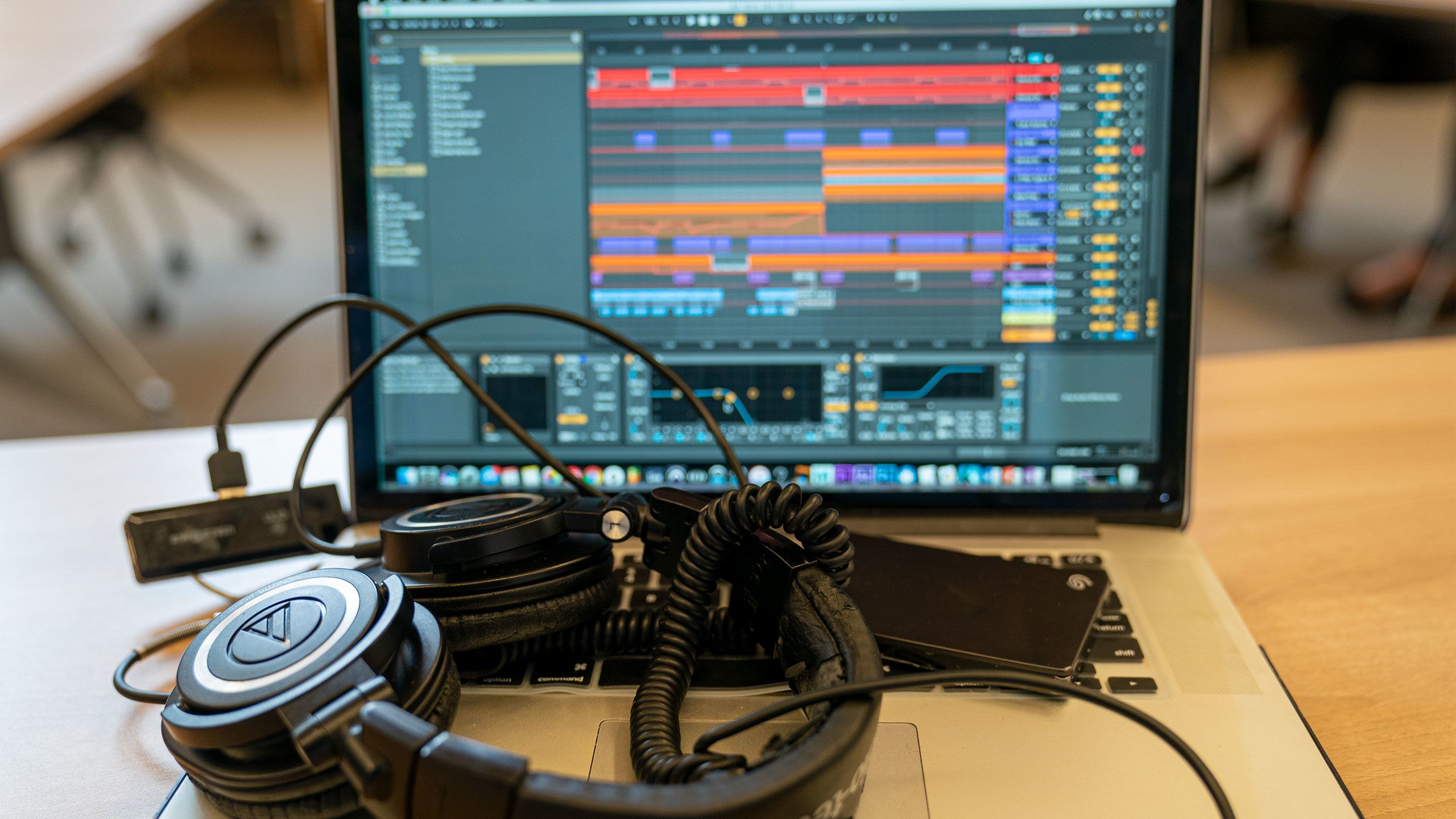The Power of Podcasts
Students gain hands-on experience in a fast-growing medium

When Rutgers University–Camden students Sandra Benjamin and Tania Martinez wanted their voices to be heard on issues of immigration, they turned to podcasting.
Martinez, whose parents immigrated from Mexico and Guatemala, and Benjamin, whose parents came from Egypt, launched a podcast that explores immigrant stories and touches on issues such as the Muslim ban, Deferred Action for Childhood Arrivals (DACA), and stereotyping of immigrants. The pair have produced six episodes, including a recent discussion with Samuel Tuero, a recent Rutgers–Camden alumnus whose parents immigrated from the Dominican Republic. “Our goal is to talk about these different immigrant experiences and put these stories into context,” Martinez said.

Martinez says she hopes that listeners can get a clear understanding of new narratives and to understand immigration policies and controversies.
Martinez says she hopes that listeners can get a clear understanding of new narratives and to understand immigration policies and controversies.
The two students are among many worldwide who are tapping into the power of podcasting to tell stories. An estimated 116 million Americans—41 percent of the population—have listened to a podcast in the past month; 80 million listen weekly.
What makes podcasts so powerful? The answer is that they are exceptionally good at one simple but increasingly difficult thing: establishing an active and direct connection between creator and listener. “No other medium is as evocative as sound,” said Robert Emmons, a Rutgers–Camden associate teaching professor who has taught podcasting. “We’re primarily a visual culture, but the power of audio lies in its limitation. When you only have sound, it requires the imagination of the listener. It requires active participation in a way that watching movies doesn’t.”
Because of that active participation, listening to a podcast can become a powerful moment of transportation. It can take you anywhere you want to go—drop into a comedy show, sit in on a political conversation among friends, or travel around the world with the click of a button.
Rutgers Joins the Conversation
This explosion of interest has led universities across the country to experiment with the podcast form, using it to give voice to a range of experts and stories. Rutgers is no exception. In 2021, Rutgers launched On the Pandemic, a podcast that kept the university community aware of an evolving response to the pandemic, while speaking to university faculty who brought their expertise to bear on an exceptional situation.
The Rutgers–Camden Digital Studies Center, where Benjamin and Martinez produce their podcast, has been incorporating podcast production into its curriculum since 2012. The possibilities that a podcast offers were what originally drew Emmons to bring it to his students. “Audio content was democratized by podcasting,” Emmons said. “Before podcasts, listening to the radio used to be primarily music, news, and sports. Now there’s an unlimited amount of audio content available to everyone. It literally gave a voice to the voiceless.”
It’s an example of the kind of hands-on education and creative thinking that defines the work of the Rutgers–Camden Digital Studies Center and is infused across campus. “We value the hard skills of practice,” Emmons said. “Incorporating real production practice into our courses means students get skills that allow them to engage in tech in ways that make them more appealing to employers. People are increasingly expected to be able to do it all, and that’s why we teach them a variety of practical skills.”
“Before podcasts, listening to the radio used to be primarily music, news, and sports. Now there’s an unlimited amount of audio content available to everyone. It literally gave a voice to the voiceless”
The Next Episode
Rutgers–Camden plans to continue experimenting with podcasts, using the format to amplify an increasing range of voices across the community. Later this year will see the launch of What Changed?, a new podcast focusing on the impact of higher education. It will feature stories about how a college education changed the trajectory of the lives of students, faculty, and members of the wider community.
Stories of change, adversity, and transformation are powerfully resonant when told through the medium of podcasts. The proliferation of podcasts over the past decade proves that there is no shortage of curiosity in the world. “Podcasts are now a permanent part of the media landscape,” Emmons said. “Anything that literature or film can do, podcasts can do too. And if they haven’t yet, they will.”
